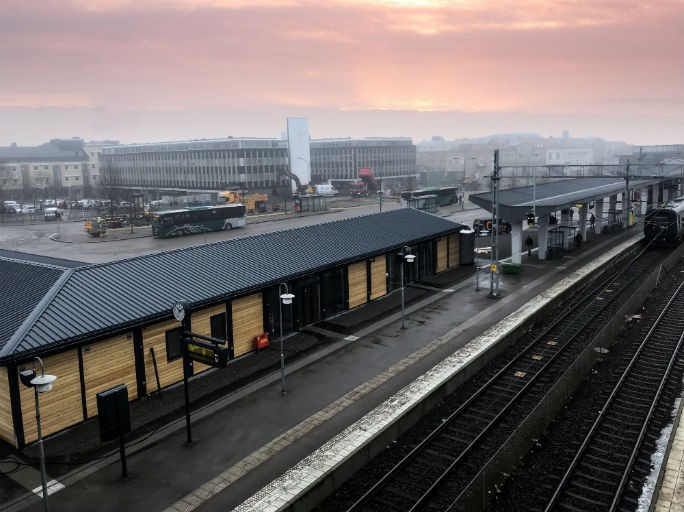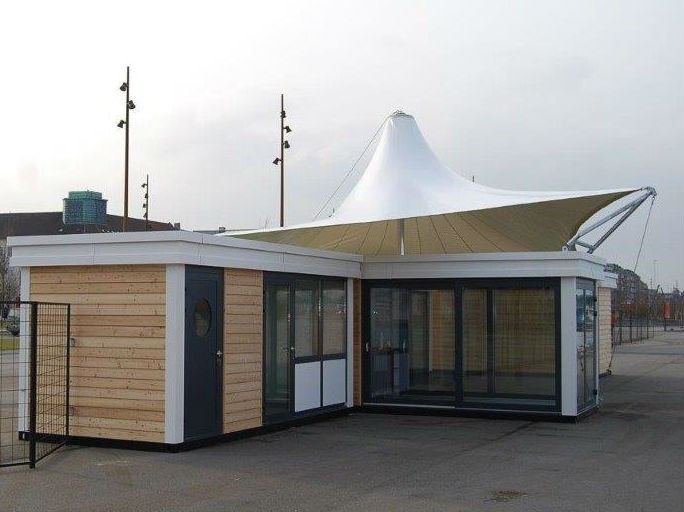Modular building solutions
Firms may decide to offer attractive working conditions as a way to pull in and keep the work force, especially when competition is high and the workforce is scarce. Basic working conditions are often laid-down by law, and safeguarded by international treaties and agreements, which have evolved through the decades of organised labour movements. Yet, employers looking to attract highly-qualified or specialized labour force want to offer additional benefits in terms of salary, bonuses or health and family insurance. What else influences the attractiveness of an employer?

Health and safety conditions and salaries determine the attractiveness of firms
Hygiene factors are fundamental wishes that employees have of a workplace. If basic hygiene and well-being conditions aren't met, workers are justifiably disappointed. For instance, an office worker may expect a pleasant working desk and a meal break. These conditions are defined in legislation and industry agreements, yet the basic standards are often upgraded, which will bring in more qualified work force. On the other hand, abuses are also frequent, and employers sometimes want to save on guaranteeing less favourable working spaces, especially for seasonal or manual labour. This should be avoided, and reported, in order to ensure comparable working standards and the respect of workers' dignity. Another important aspect is health and safety, which must be safe-guarded, especially in demanding and difficult environments. Work environment related accidents and damage are a common and typical issue in numerous companies. Employers understand that efforts to make work sound and safe are vital, yet may include considerable investment into procedures, methodology and security equipment. Last but not least, productive work must ensure a wage that is appropriate, taking account of the efforts and capacities of an individual and the demands of an occupation. Where working conditions are poor and difficult, remuneration might compensate for the added hardships. For instance, a job that is unpleasant, dangerous or unpopular might be set at remunerated at higher pay level than a comparable position that isn't as hard to endure or upsetting.
Addressing demands of workplace comfort while keeping check on costs
Employers are pressed by the market to ensure orders in conditions of constant change and variability in the market. They need to be reactive and adaptable, while keeping track of progress in their specific branch. All of this, coupled with increasing competition for good and highly qualified personnel, leads to pressure on businesses to ensure respect of basic working standards, with an added note of increased flexibility. Only companies that can use creative and innovative solutions in this respect will be able to survive in the long term, keeping their flexible character. While legislative frameworks are limiting to a certain degree, more room for manoeuvre and efficient resource management can be sought in the areas of working spaces and working time.
Flexible workspaces and working time make a difference for all
The changes in the business world impact all labour market actors. With younger employees increasingly seeking equal work-life balance and the connectivity predominantly affecting all life areas, it is vital for the businesses to tap into the growing trends of flexible working and modular solutions in terms of buildings and workspaces. Modular building design is a way to address fluctuations of the market and keeping all the standards that are necessary to align to existing regulations. In this way, employers can quickly ensure setting-up of new units in various locations, while respecting the comparability of working conditions in all settings. This provides guarantees to employees who value stability and work safety, while at the same time keeping flexibility. Modular solutions, which are standardized in terms of materials and dimensions, are energy-efficient and made increasingly from natural and reusable materials. In this way, modular building design can address key concerns of the millennial work force, which are sustainability, energy-efficiency and resource control. While future developments in labour market are difficult to predict, the trends towards more variability will continue. Migration and connectivity being important factors influencing the world economies, one can not forget the immense technological advances currently happening in all industry and science spheres. Employers and employees alike are seeking ways to adapt to these new realities, and flexible working space and time solutions can certainly be a way forward.
